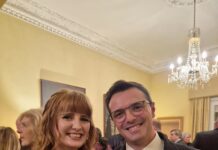
The MSC Foundation and the International Union for Conservation of Nature (IUCN) has announced a new partnership to conserve and restore threatened coral reefs.
The announcement was made during Monaco Ocean Week, an event that brings experts and leaders from across the marine conservation community together to discuss key challenges facing the world’s oceans.
The project will include identifying the most threatened species of coral and areas of reef; prioritising conservation and restoration actions based on the threats they face; and reporting the contribution that conserving these ecosystems makes to achieving the targets in the UN Global Biodiversity Framework.
“I want to express my sincere thanks to the MSC Foundation for their support. It could not be more vital; over a third of coral species assessed on the IUCN Red List face extinction. This partnership will enable us to complete further assessments, and ensure the world has the information needed to protect corals and the livelihoods of the more than half a billion people who depend upon them,” said IUCN President Razan Al Mubarak.
Pierfrancesco Vago, Chair of the MSC Foundation Executive Committee and Executive Chairman of the Cruise Division of MSC Group, commented: “As stewards of our planet, we have a responsibility to protect its precious ecosystems. Our new partnership with IUCN is a powerful commitment to conserve and restore threatened coral reefs, mangrove forests and seagrass beds. By empowering decision-makers and practitioners to act on the global recommendations emerging from the Global Marine Biodiversity Assessment, we can safeguard these essential ecosystems for future generations.”
MSC Foundation Executive Director Daniela Picco added: “The MSC Foundation is committed to advancing ocean science and delighted to partner with IUCN to drive meaningful change in the marine conservation space. This partnership marks a significant step forward in our efforts to restore and protect the world’s oceans. It complements our Super Coral Programme and other work in the marine conservation area, while offering promising scope to involve new partners on the communication and dissemination side. Together, we will work towards a sustainable future for our planet, where marine life thrives and the oceans are restored to health for generations to come.”
The partnership will also contribute to the UN Decade of Ocean Science for Sustainable Development.




